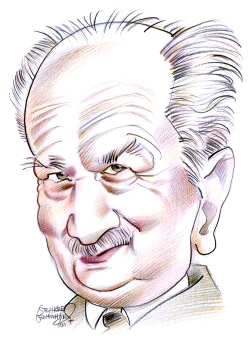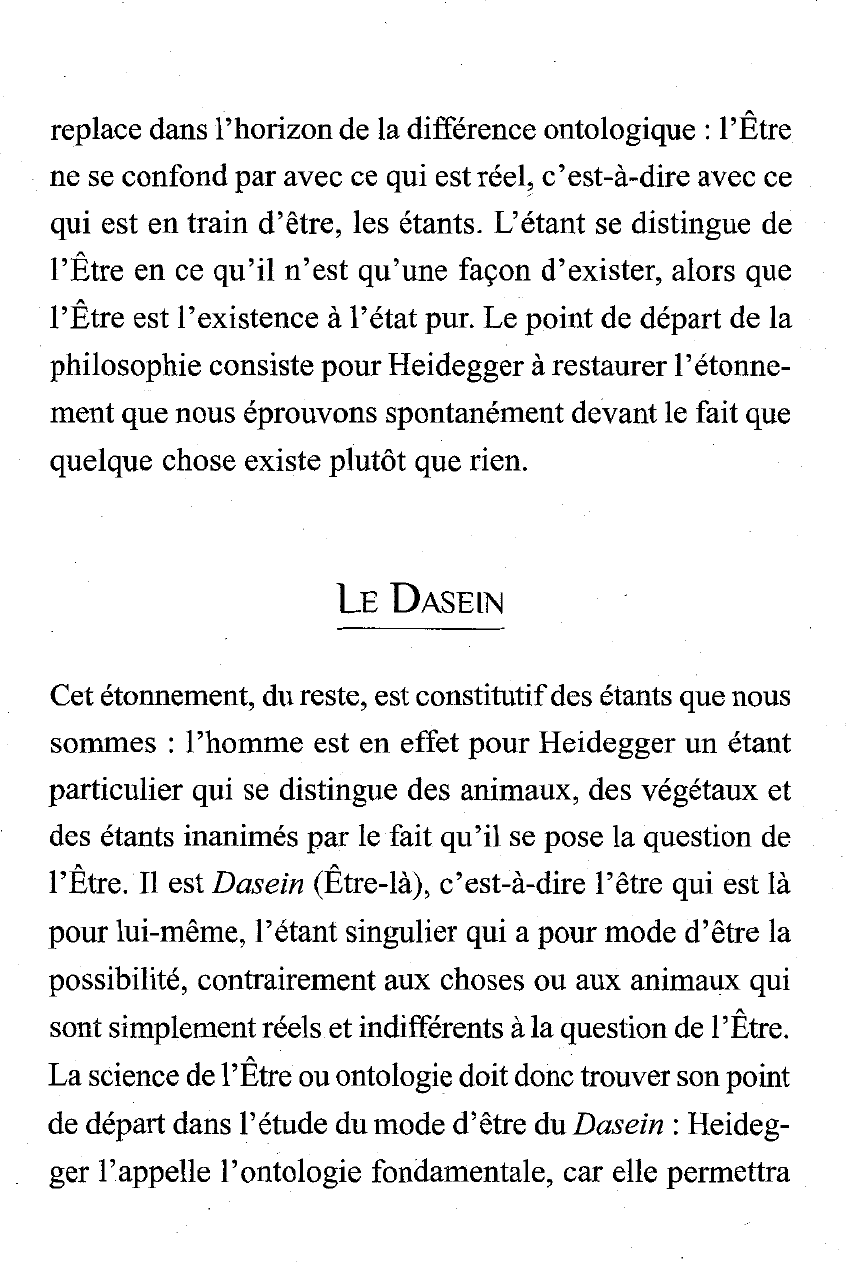HEIDEGGER, MARTIN
Publié le 17/01/2022

Extrait du document


«
replace dans l'horizon de la différence ontologique: l'Être
ne se confond par avec ce qui est
réel, c'est-à-dire avec ce
qui est en train d'être, les étants.
L'étant se distingue de
l'Être en
ce qu'il
n'est qu'une façon d'exister, alors que
l'Être est l'existence à l'état pur.
Le point de départ de la
philosophie consiste pour Heidegger à restaurer
1' étonne
ment que nous éprouvons spontanément devant le fait que
quelque chose existe plutôt que rien.
LE DASELN
Cet étonnement, du reste, est constitutif des étants que nous
sommes : 1 'homme est en effet pour Heidegger un étant
particulier qui se distingue des animaux, des végétaux et
des étants inanimés par le fait qu'il se pose la question de
l'Être.
Il est
Dasein (Être-là), c'est-à-dire l'être qui est là
pour lui-même, l'étant singulier qui a pour mode d'être la
possibilité, contrairement aux choses ou aux animaux qui
sont simplement réels et indifférents à la question
de l'Être.
La science
de l'Être ou ontologie doit donc trouver son point
de départ dans 1 'étude du mode d'être du
Dasein : Heideg
ger l'appelle l'ontologie fondamentale, car elle permettra
79.
»
↓↓↓ APERÇU DU DOCUMENT ↓↓↓
Liens utiles
- QU’EST-CE QU’UNE CHOSE?, Martin Heidegger (résumé)
- Lettre sur l'humanisme de Martin Heidegger (résumé et analyse)
- LETTRE SUR L’HUMANISME, Martin Heidegger - résumé de l'oeuvre
- KANT ET LE PROBLÈME DE LA MÉTAPHYSIQUE, Martin Heidegger - résumé de l'oeuvre
- QUESTIONS I ET II, 1968 et 1970. Martin Heidegger (résumé)


